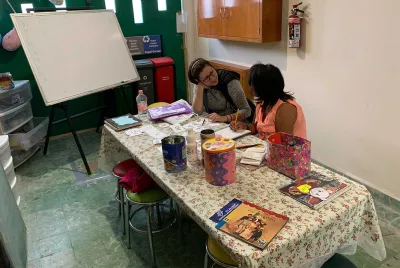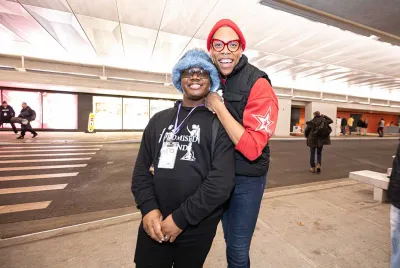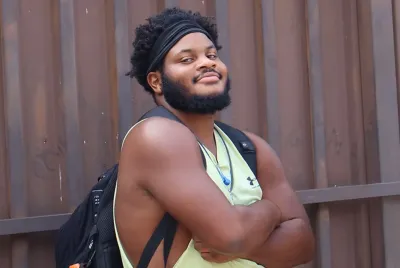A Lifetime Commitment to Youth in Need
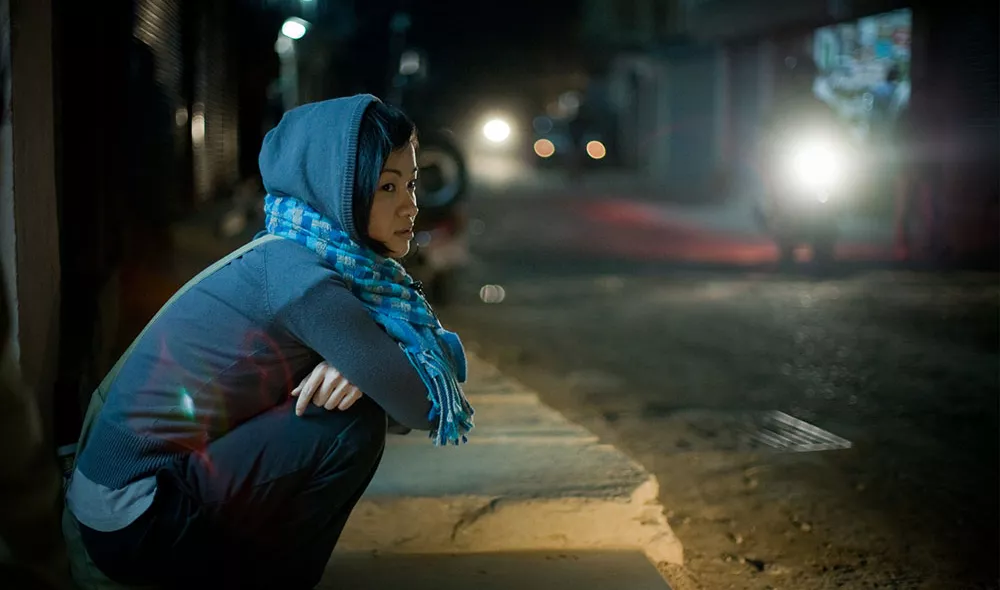
When Thomas Eccles, a fourth-year medical student in Indiana, arrived in New York City in 1982, he aimed to use a one-month practicum to see how medical personnel managed a high-stress, high-need environment. It would be an interesting tool to add to his medical bag, he felt. But his placement, serving young people facing homelessness at Covenant House, turned into so much more: a lifetime commitment to help youth heal and thrive.
“I had no idea how impactful the experience would be,” Dr. Eccles says now, as he reflects on his four-decade career and how it was shaped by that singular experience at Covenant House. “It’s been a long time, but I’ve carried it with me. It’s always been, sort of, underneath my work.”
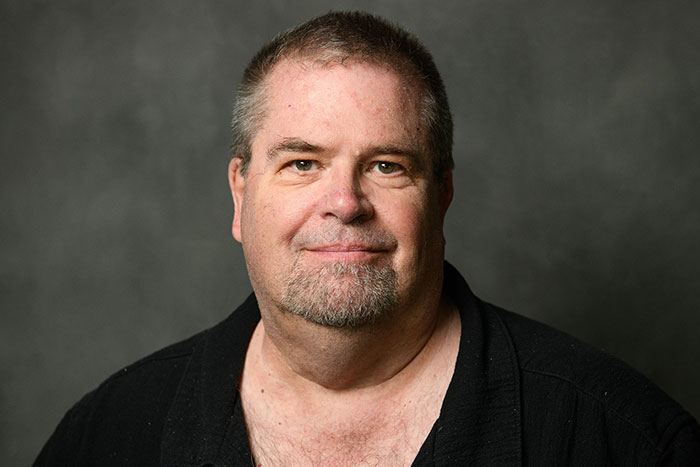
Dr. Eccles went on to specialize in pediatrics and adolescent medicine, attending to young people in Indiana, Louisiana, and Arizona. He’s always been intentional about serving youth with the fewest resources, the greatest need, and, often, the deepest dreams. Youth, he says, who find themselves on society’s margins, like the young people he continues to support, all these years later, through a monthly donation to Covenant House.
Summer in the City
During the steamy August Dr. Eccles spent at Covenant House New York, he says he and our medical personnel regularly saw young people “living hand-to-mouth. They were marginally housed or not housed at all,” he says, “and they engaged in a lot of survival activities.” The HIV/AIDS epidemic was just beginning then, he notes.
Young people would drop into the clinic for services, just as our neighbors in Midtown Manhattan still come to our federally qualified clinic today. “The variety of the things we saw were the kinds of things you would see in a setting like that. Just living the life of a marginal person puts you at high risk for a variety of illnesses and medical needs,” Dr. Eccles says.
“A young person would come in for some sort of medical issue — and those issues were myriad — and oftentimes, while waiting for us or after we were finished, they would fall asleep, right there. And whoever was working at that time was perfectly fine with that, as long as we didn’t need the space at the time,” he says, recalling the exhausting daily routine unhoused youth face just trying to stay alive.
The Little Things
“What I came to realize is that sometimes it was those little things that were far more important, even, than the medical things we were doing,” he says. “To have a safe place to take a nap; to have a safe place where somebody wasn’t going to kick you off the corner or call the police — those little things are what really change lives.”
The “little things” might also be about reconnecting to school, or reconnecting a youth with their family, or helping them get food stamps for their child, Dr. Eccles recalls.
Since his summer at Covenant House and throughout his long practice, Dr. Eccles has continued to engage with young people seeking both healing and the resolution of those same “little things,” what he calls “little barrier removals,” that means so much.
“Marginalization happens not just on the street but in less dramatic settings: the struggling first-generation college student; the young adult with undiagnosed depression or a learning disorder. Something as simple as treating acne can make a huge difference in lifting up struggling youth,” Dr. Eccles says.
“You change lives by being engaged with the little things people need along the way, as well as the big things,” he says. “It’s the meaning you find in what you do and the freedom it gives others to expand their own world that really matters.”
Kind and Open Hearts
Thomas Eccles knows how fortunate he is to have come from a loving home and family. The son of a United Methodist minister and professor, he says he felt free to pursue his interests and dreams, knowing his parents were there for him if things ever fell through anywhere along his journey.
“That’s one of the things many marginal young adults don’t have,” he says. “They don’t have anywhere they can turn to or a sense that they can turn to someone or someplace” when their dreams hit a roadblock.
He says his parents were always kind and welcoming. His dad liked to quote from the Robert Frost poem “The Death of the Hired Man,” where a couple discuss the meaning of home. The wife, Mary, responding to her husband’s utilitarian view of home (“they have to let you in”) replies, “Home is something you somehow haven’t to deserve.”
“And that was the message my parents shared over and over again in their lives: You don’t have to earn this. You, as a human being, can have these things. Oftentimes, for people who are struggling, we think they need to earn the right to have some of the human things most of us take for granted,” Dr. Eccles says.
At Covenant House, too, he says, “I don’t ever remember hearing anyone tell a youth, ‘You have to do XYZ in order to earn a place at the table.” It is a reference to our open intake policy, which establishes that every young person is welcome at our residences as long as we have room and the safe conditions to receive them.
Take the Step You Can Take
While he has not had the opportunity to revisit Covenant House since 1982, Dr. Eccles has followed the growth and deepening of our mission over the years. Back then, we had only our flagship site in New York City, a 1-year-old site in Guatemala, and another site that opened that year in Toronto, Ontario, Canada. Today, Covenant House is present in 34 cities across five countries, serving over 57,000 young people annually.
And Dr. Eccles, through his steady, monthly donation, has continued to be a part of our mission and all that growth. “Oftentimes, people think, ‘Oh, I can’t make a huge donation,’ or ‘I can’t make a huge gift.’ But it’s really about providing what you’re able to provide and using that as a steppingstone for other actions you can take in your life,” he says.
“What I have done are these small things that I think have made a huge difference, not only for the people I work with but, also, for me because I’m constantly changed by the things young adults say to me or the experiences I have in trying to take care of them: discovering what they need, what they want, and what their dreams are,” Dr. Eccles says.
“And one of the things I think about Covenant House is how many dreams you all have saved for young adults who thought they couldn’t do things: the young woman who didn’t think she could go to college; the guy who never thought he could get a job anywhere; the person who thinks they can’t get out of their addiction or leave the streets. Those are the things that make a difference,” he underscores.
Dr. Eccles says he supports Covenant House because “there are an awful lot of places where you can give your money or your time, but there aren’t a lot of places where you can give it to people who really need it and rarely ask for it. There are very few places where you can commit yourself to people who just show up at your door and don’t entirely know why they’re there or what they need.”
Covenant House opens the door and turns no one away.
News and Insights
All news & insightsShelter Is Only the Beginning
From crisis to care: Find out what it's like when a young person enters our doors.
